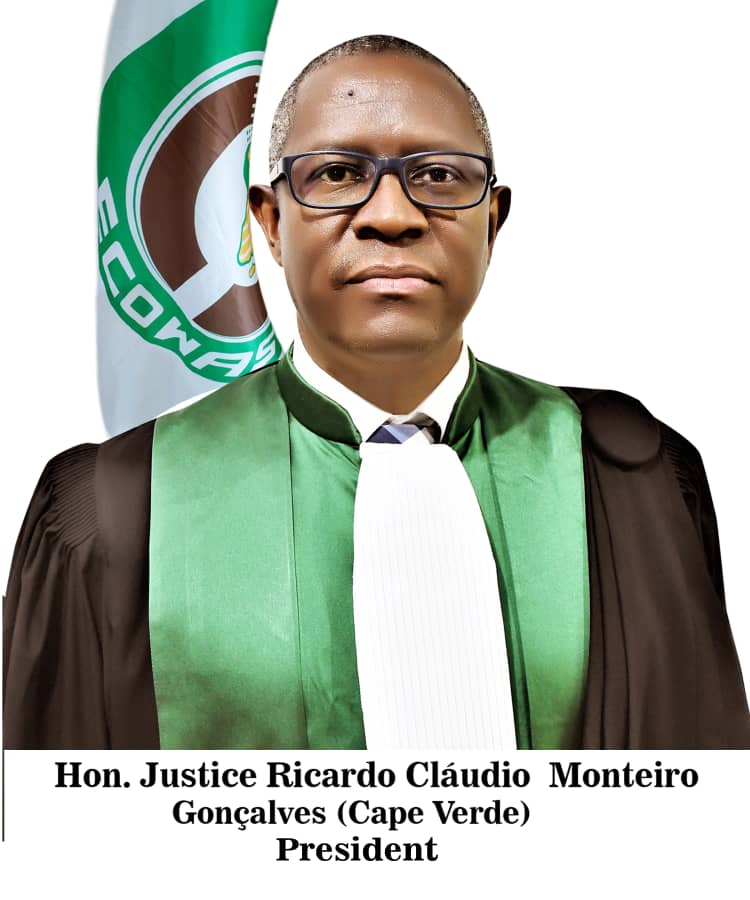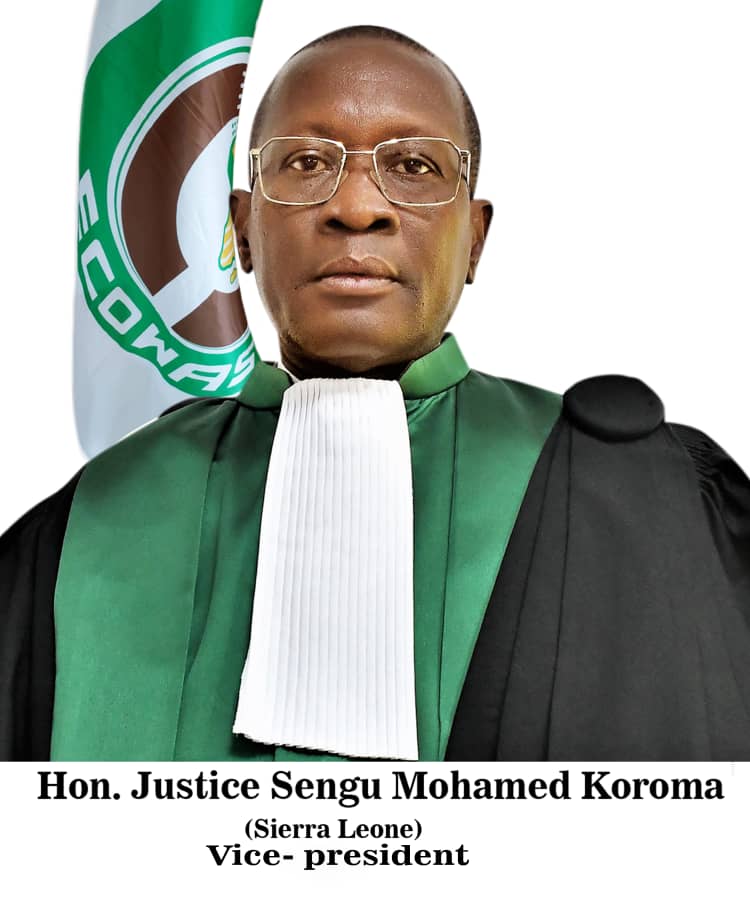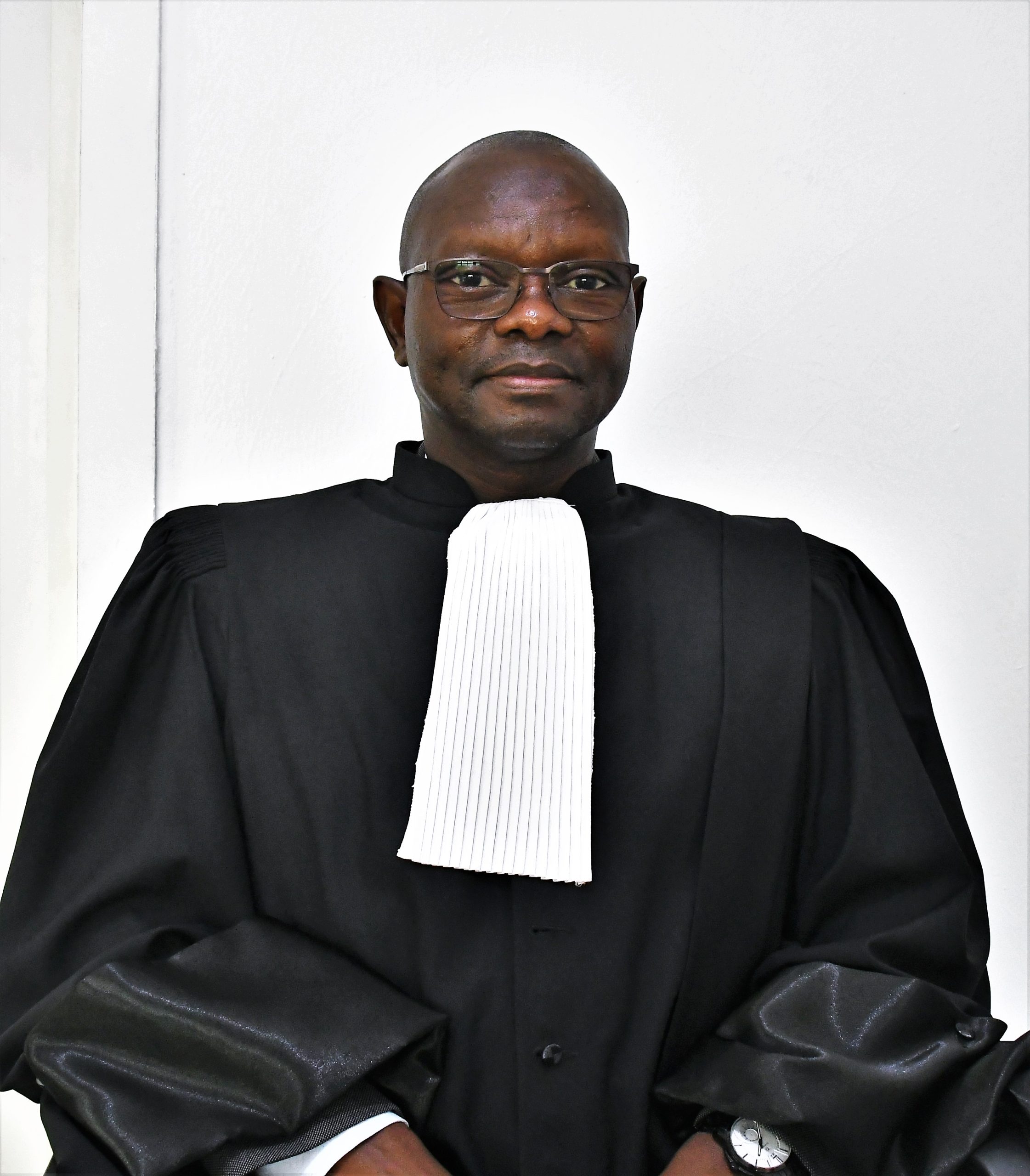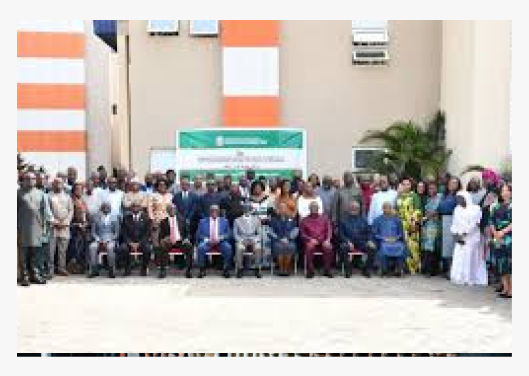Structure Of The Court

Management of the Court
- The management of the Court is made up of the President and the Vice President, elected by the College of Judges. They are responsible for the Court’s daily administration, operations, and overall institutional development, ensuring that it functions smoothly and fulfils its mandate effectively. Its functions include administrative oversight and resource management, judicial and case management, coordination with ECOWAS institutions and Member States, policy development and strategic planning, financial management and budgeting, public relations and communications.
- They also oversee the programmes of the departments of the Court which are: the Registry, Department of Research and Documentation and Department of Administration and Finance.

Office of the President
- The office of the President of the ECOWAS Court of Justice plays a vital role in guiding the Court’s judicial and administrative functions, ensuring that it fulfils its mandate of ensuring the observance of the rule of law and equity, promoting justice, human rights, and regional integration across West Africa. The office of the President provides judicial leadership, administrative oversight, case management and coordination, policy development and strategic planning and promoting public awareness. The office of the President ensures that the Court operates with transparency, accountability and responsiveness to the needs of the region. Through its functions, the Office upholds the Court’s mission, vision and core values, which includes providing accessible justice, protect human rights and contribute to regional stability and integration within West Africa.
Office of the Vice President
- The Office of the Vice President of the ECOWAS Court of Justice supports the Court’s mission by assisting the President in judicial, administrative, and representational responsibilities. The Vice President works closely with the President to ensure the efficient functioning of the Court and contributes to strategic initiatives that promote justice and integration across the ECOWAS region. The functions of the Office of the Vice President include, judicial support and case oversight, administrative collaboration, representation and external relations, strategic planning and policy support and public engagement and outreach. The Office of the Vice President plays a crucial supportive role in ensuring the effective functioning and responsiveness of the ECOWAS Court of Justice. Through judicial, administrative and representational duties, the Vice President reinforces the Court’s commitment to justice, human rights and regional integration, strengthening its impact across the ECOWAS region.


Judges’ Chambers
- The Chambers of the Judges at the ECOWAS Court of Justice are essential to the Court’s mission of providing justice, upholding human rights, and ensuring the fair application of ECOWAS laws across member States. Each judge’s chamber is responsible for handling cases, conducting legal research, and contributing to the development of regional jurisprudence within West Africa. The functions of the judges chambers include, case adjudication and decision-making, legal research and analysis, drafting judgments and rulings, collaborative deliberations, advisory role, outreach and capacity building. The Chambers of Judges are foundational to the ECOWAS Court of Justice, ensuring that cases are handled with professionalism, diligence and impartiality. Through their legal expertise and commitment to justice, the judges uphold the rule of law, strengthen human rights protection and advance the Court’s role as a pillar of regional governance and integration in West Africa.
The Office of the Chief Registrar
- The Office of the Chief Registrar of the ECOWAS Court of Justice is crucial in managing the Court’s administrative and procedural operations. The Chief Registrar as a senior director, reports directly to the President of the Court and ensures that cases are processed efficiently and that the Court functions smoothly to fulfil its mission of justice and regional integration across ECOWAS member States. The Office of the Chief Registrar is responsible for case management and Court proceedings, record-keeping and documentation, custody of the Seal of the Court, liaison and communication, supporting judicial deliberations, assisting in policy development and implementation. The Office of the Chief Registrar is essential to the ECOWAS Court, ensuring that cases are processed with efficiency and transparency. Through effective case management, administrative oversight and clear communication, the Chief Registrar upholds the Court’s operational integrity and accessibility. This role is fundamental in supporting the Court’s mission to deliver justice, uphold human rights and foster regional integration across West Africa.



